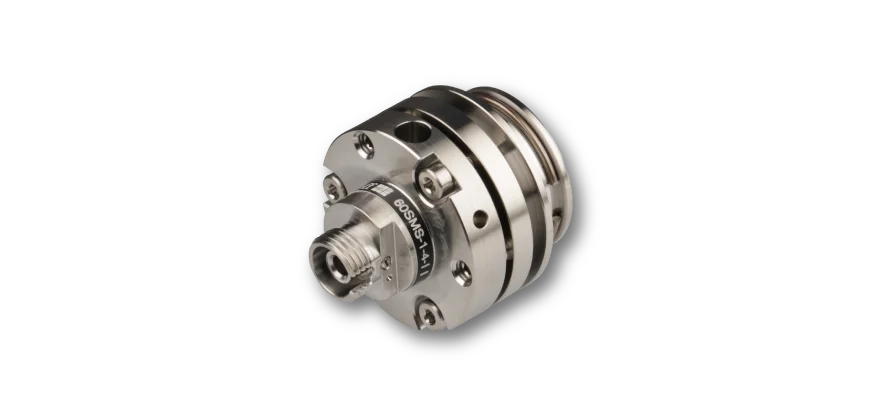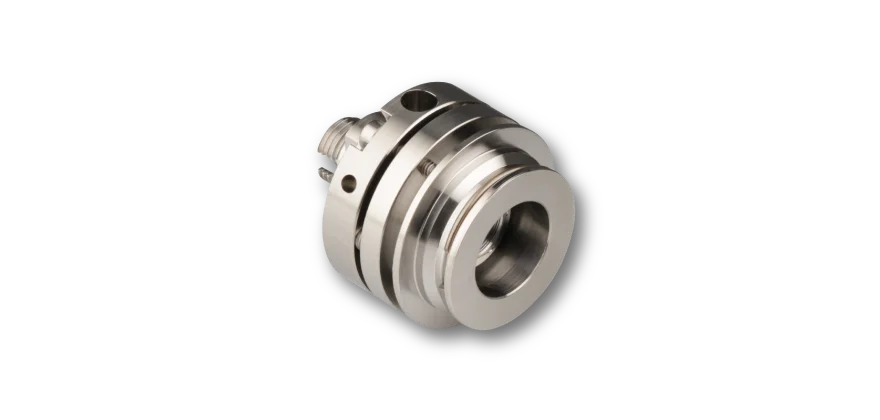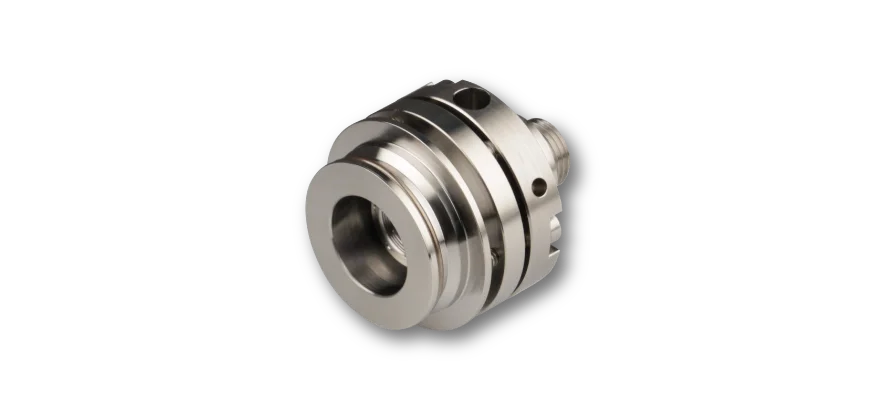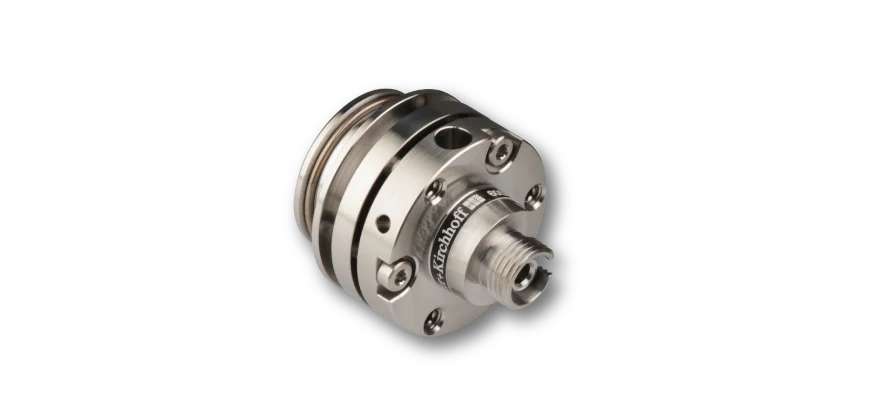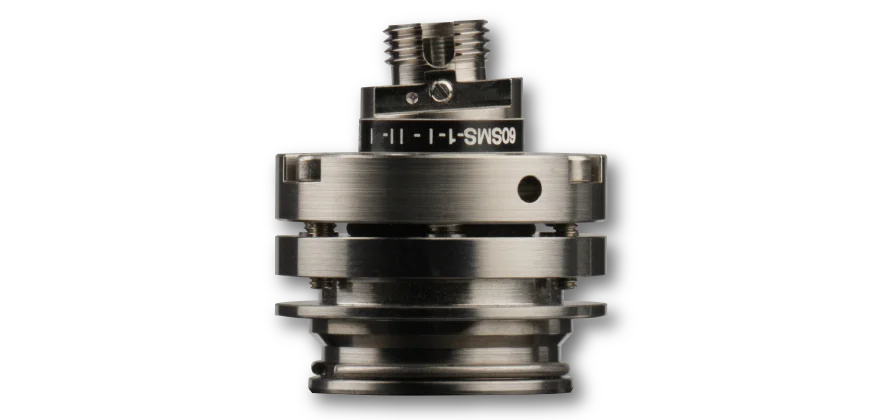The laser beam coupler series 60SMS is designed for compact and long-term
stable coupling of single-mode laser radiation into a single-mode or
polarization-maintaining fiber. For multimode applications please use the series
60FC-A19.5
fiber couplers.
The features of the coupler type 60SMS include:
Optics
The
monochromat
with focal length 18.4 mm is designed for single wavelength applications.
It is AR-coated for 980 - 1550 nm and is suitable for 980 - 1550 nm.
It is corrected for
spherical aberrations and designed in such a way that it leads to a diffraction-limited
spot with an M2 < 1.05. The focus position varies strongly with wavelength so that
the coupler has to be refocussed after any changes to the wavelength. It is not suitable
for UHV applications.
High long-term stability
It‘s compact size as well as the high-resolution alignment mechanisms allow for a
straight-forward, intuitive coupling procedure. The result is a fiber coupling with
high thermal stability, pointing stability, that is vibration and shock-insensitive.
Long-term stability tests
(see figure on the right) have shown a power stability
better than 3 % for a temperature range of 15 - 35 °C.
6 Degrees of freedom*
In order to achieve optimum coupling efficiency, the fiber coupler needs to provide
certain degrees of freedom. You need to adjust the angle between laser beam and
lens/fiber end-face, the z-position of the lens, adjust the polarization axis of the
fiber to that of the laser source and center the lens with respect to the laser beam.
The fiber coupler provides all degrees of freedom necessary. It has a TILT adjustment,
an independent focus adjustment, can be rotated 360°, and allows for lateral
adjustment* using e.g the adapter 60A19.5-F.
The TILT adjustment is used to maximize the lateral overlap between the mode field
of the fiber and the focussed laser spot using 3 adjustment screws. 3 locking
screws are used for fine-adjustment and to lock the position for an optimum
mechanical stability.
Independent to the TILT adjustment, the distance between fiber end-face and coupling
optics is adjusted by means of an eccentric key. The final focus setting is locked
by means of two radially arranged clamping screws. Since the focus adjustment is
independent, the z-position of the mode field diameter can be placed much more precisely.
The polarization alignment of the fiber to the polarization axis of the laser source
is performed by rotating the laser beam coupler. The separation of the fiber coupler
and the adapter necessary for centering is essential to allow for a full 360° freedom
of rotation. The coupler has a tight-fit cylinder that can be placed into a 19.5 mm
receptacle of a corresponding
adapter.
The beam can be centered with respect to the aperture of the coupling optics
using e.g. the adapter 60A19.5-F.
Optimum lens performance
The angled polish of connectors of type APC causes the beam to exit in an angle and
not parallel to the optical axis of the fiber. This is corrected by the
pre-angled
mechanical coupling axis of the coupler. that compensates the beam
deflection and you can use the lens centrically. This minimizes aberrations simply
resulting from a non-ideal beam path through the lens.
Connector Type
The fiber coupler is equipped with a FC-APC type receptacle.
Because of the spring-loaded fiber ferrule the fiber coupler has an additional grub
screw to increase pointing stability.
Material
The fiber coupler type 60SMS is made from amagnetic titanium. The relative permeability
is near 1 (µr = 1.00005) making it almost transparent to magnetic fields. The linear
coefficient of thermal expansion is close to that of the optics so that a thermal
stability over a larger temperature range can be expected.
